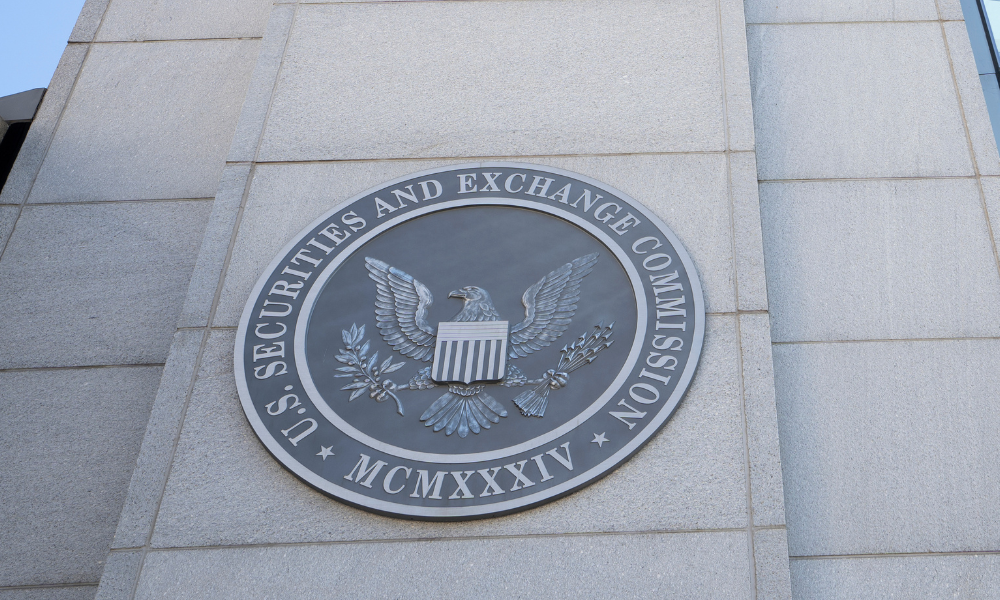

In a striking reversal of its once-aggressive posture toward the digital asset industry, the Securities and Exchange Commission this week quietly dismissed three high-profile enforcement actions against major crypto firms—Kraken, Consensys, and Cumberland DRW—signaling what may be the most significant recalibration of U.S. crypto policy in years.
Filed on March 27, the joint stipulations to dismiss these cases “with prejudice”—meaning the claims cannot be refiled—did not stem from any legal concession about the merits of the original allegations. Instead, the SEC pointed to a broader policy shift. The dismissals, according to statements embedded in the court filings, reflect the Commission’s intention “to reform and renew its regulatory approach to the crypto industry.”
This new language has become a refrain. In each dismissal, the agency emphasized that the decision should not be construed as an endorsement of the conduct alleged, nor as setting a precedent for other ongoing cases. But to many in the industry, the coordinated timing of the withdrawals sends a clear message: a new era of crypto regulation has begun.
The first of the dismissed cases, against Payward Inc. and Payward Ventures Inc., the parent companies of Kraken, accused the firm of operating its platform as an unregistered exchange, broker, dealer, and clearing agency. The SEC’s 2023 complaint painted a damning picture: Kraken allegedly commingled client assets, failed to maintain adequate records, and ignored registration requirements that traditional securities intermediaries must follow.
In parallel, the Commission also dropped its claims against Consensys Software Inc., a foundational player in the Ethereum ecosystem. The agency had accused Consensys of operating as an unregistered broker through its MetaMask Swaps and MetaMask Staking features, and of selling unregistered securities in the form of liquid staking tokens issued by third-party platforms Lido and Rocket Pool.
And in Cumberland DRW LLC’s case, the SEC charged the Chicago-based firm with functioning as an unregistered dealer in over $2 billion of crypto securities. Cumberland, known for deep liquidity provisioning, was alleged to have acted as a full-scale market maker without the licenses required by federal law.
Each of these cases, once considered bellwethers for the SEC’s campaign to rein in the crypto industry, has now been terminated—deliberately and decisively.
Behind the scenes, industry observers say the policy sea change can be traced to the January resignation of former SEC Chair Gary Gensler, whose tenure was marked by an expansive interpretation of federal securities laws and a litigious approach to digital asset firms. His successor, acting Chair Mark Uyeda, a longtime SEC Commissioner and registered Republican, has brought a markedly different philosophy to the helm.
“Gensler governed by subpoena. Uyeda is governing by review,” said a senior crypto legal analyst who requested anonymity due to ongoing regulatory discussions with the agency.
Under Uyeda’s brief but impactful leadership, enforcement against other firms—such as Coinbase, Uniswap, and Robinhood—has reportedly been curtailed or reassessed. Even Crypto.com, which received a Wells Notice last summer and braced for litigation, confirmed this week that the SEC had dropped its probe without filing charges. In response, CEO Kris Marszalek accused the prior SEC administration of “a calculated attempt to put an end to the industry.”
While industry advocates are celebrating what they see as long-overdue regulatory clarity—or at least a reprieve from legal whiplash—some experts caution that the absence of enforcement does not equate to legal certainty.
“This isn’t a regulatory green light; it’s a pause,” said Rebecca Gensler, a former deputy at the SEC who now advises fintech startups. “The SEC is acknowledging that its current tools and interpretations are insufficient, but that doesn’t mean it’s finished. It may just be reloading.”
That distinction is particularly important as firms like Crypto.com prepare to capitalize on the regulatory thaw. Just days before the dismissals, the company announced a splashy new venture: partnering with Trump Media & Technology Group to launch a series of “Made in America”-branded crypto ETFs. The product line, expected later this year, may include custodial services for blue-chip tokens like Bitcoin and Ethereum, along with politically charged branding aimed at nationalist investors.
For now, however, the SEC’s sharp pivot has removed a dark cloud from over some of crypto’s largest operators. Whether this is a short-term reset or the beginning of a lasting détente remains to be seen.
Disclosure: This article reflects public court filings and regulatory announcements as of March 29, 2025. The SEC has not issued further comment beyond its litigation releases.

Some in the industry say that more UBS financial advisors this year will be heading for the exits.

The Wall Street giant has blasted data middlemen as digital freeloaders, but tech firms and consumer advocates are pushing back.

Research reveals a 4% year-on-year increase in expenses that one in five Americans, including one-quarter of Gen Xers, say they have not planned for.

Raymond James also lured another ex-Edward Jones advisor in South Carolina, while LPL welcomed a mother-and-son team from Edward Jones and Thrivent.

MyVest and Vestmark have also unveiled strategic partnerships aimed at helping advisors and RIAs bring personalization to more clients.
Orion's Tom Wilson on delivering coordinated, high-touch service in a world where returns alone no longer set you apart.
Barely a decade old, registered index-linked annuities have quickly surged in popularity, thanks to their unique blend of protection and growth potential—an appealing option for investors looking to chart a steadier course through today's choppy market waters, says Myles Lambert, Brighthouse Financial.
